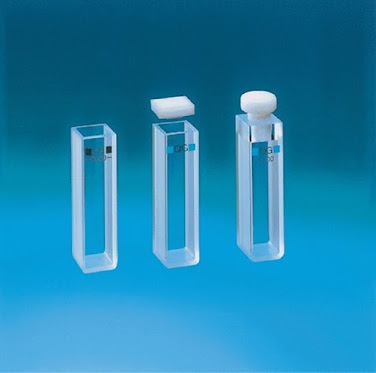Nowadays,
there are different types of cuvettes used for different tests and experiments
in laboratories. The cuvettes can be made of different materials such as
plastic, glass and quartz. However, quartz cuvettes have always been the first
choice when working in the UV range. UV light can be easily absorbed by plastic
and glass. For this reason, testing in the UV range with glass and plastic
cuvettes will not give you an accurate result.
There is never any interference.
Because these materials easily absorb UV
light, they can produce interference. Therefore, cuvettes made from it are not
the best option for photometric testing. In the visible light range, the
wavelength can remain very long. For this reason, quartz cuvettes are mainly
used so that accurate results can be achieved and there are no interferences.
If you are looking for UV quartz cuvettes with screw caps and PTFE septa, you
have come to the right place.
Follow standard cleaning procedures to clean
these buckets.
For photometric measurements it is always
necessary to use clean cuvettes. Ultraviolet quartz cells with PTFE screw caps and septa, can be cleaned and reused. And that undoubtedly makes them
more versatile bucket types. UV quartz cuvettes typically have four different
windows that are polished and clean. For this reason, they can help you get
accurate photometric measurements. These buckets can be cleaned using the
standard cleaning procedure.
 |
| Ultraviolet Quartz Cells With PTFE Screw Caps And Septa |
A perfect laboratory vessel
A wide range of chemicals and test materials
are used in laboratories. Therefore, it is necessary to store and experience
them properly. Here the use of UV quartz cells with screw caps and PTFE septa
can make a big difference in the expected result. These are laboratory-quality
containers. While using them, you can perform your tests safely and accurately.
These items come with caps and septa. For this reason, you can store the
liquids you need for testing safely and properly.
Get
accurate measurements in the UV range
If you want to get accurate measurements when
testing in the UV range, you can achieve amazing results by using P-type Boron-doped 200nm SiO2 thermal oxide wafer. It does not absorb ultraviolet
light like plastic and glass. Because of this, interference never occurs, which
ultimately helps you get accurate measurements.
No comments:
Post a Comment